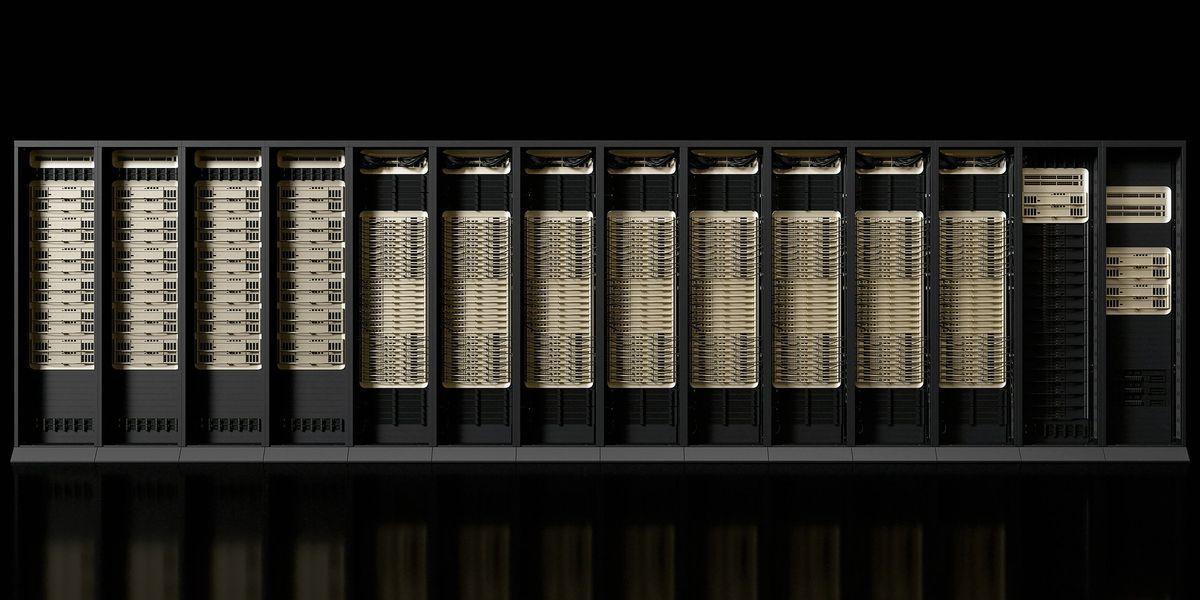China Claims World-First: Quantum Computer Fine-Tunes Billion-Parameter AI Model
2 Sources
2 Sources
[1]
World-first: Quantum computer tunes billion-parameter AI model
The experiment was conducted at the Anhui Quantum Computing Engineering Research Center, where this computer is operated. On this quantum chip, one set of data can run hundreds of tasks at the same time. That's a big deal for how fast AI models can learn. Furthermore, when this quantum chip was tested on a mental health chatbot dataset, the training improved by 15 percent. Mathematical accuracy also showed a spike, going from 68 percent to 82 percent. Even with the AI model size reduced by 76 percent, the performance still got better by 8.4 percent. This shows that quantum computers can help solve the problem of not having enough computing power to train huge AI models. Industry analysts said that this experiment has not only validated the feasibility of using quantum computing to achieve lightweighting of large language models (LLMs) but also laid a new path to address "computing power anxiety." Industry analysts have reported that this experiment opens the doors to achieving the light-weighting of large language models (LLMs) and the opportunity to address "computing power anxiety."
[2]
China 'Achieves' Quantum Breakthrough in AI Model Fine-Tuning
The experiment involved Origin Wukong, a third-generation superconducting quantum computer powered by a 72-qubit chip. Chinese scientists have successfully fine-tuned a billion-parameter AI model using the Origin Wukong superconducting quantum computer, claiming it to be the first of its kind worldwide. This feat was accomplished at the Anhui Quantum Computing Engineering Research Centre, as reported by Global Times. The experiment involved Origin Wukong, a third-generation superconducting quantum computer powered by a 72-qubit chip. It was a collaborative effort between Origin Quantum and other research institutions. The fine-tuning process reportedly involved adapting a large AI model for specialised applications by retraining it on domain-specific data. This was achieved by leveraging the quantum computer's ability to execute hundreds of parallel quantum tasks per batch. The results, as showcased by the research centre, indicated a significant improvement in model performance. A 76% reduction in parameters led to an 8.4% increase in training effectiveness, and the accuracy on a mathematical reasoning task rose from 68% to 82%. "It's like equipping a classical model with a quantum engine, allowing the two to work in synergy," explained Dou Menghan, vice president of Origin Quantum Computing Technology Co. The experiment highlights the potential of quantum computing to enhance AI model efficiency, particularly in reducing the computational resources required for large models. This breakthrough is a step forward in addressing 'computing power anxiety' associated with large AI models. Chen Zhaoyun, a researcher at the Institute of Artificial Intelligence, noted that this marks the first real-world application of quantum computing in large model tasks, proving the capability of existing hardware to support such operations. Origin Wukong has been operational since January 2024 and has completed over 350,000 quantum computing tasks across various industries, including fluid dynamics, finance, and biomedicine. Users from 139 countries have accessed the system remotely. In the broader context, this achievement demonstrates quantum computing's growing capabilities in supporting complex AI tasks. Integrating quantum and classical computing could lead to more efficient and powerful AI applications in fields like medical diagnosis and financial risk management.
Share
Share
Copy Link
Chinese scientists have successfully used a quantum computer to fine-tune a billion-parameter AI model, potentially addressing computing power limitations in AI training and opening new avenues for more efficient AI applications.

Quantum Breakthrough in AI Model Fine-Tuning
Chinese scientists have achieved a significant milestone in the field of artificial intelligence and quantum computing. In a world-first experiment, researchers at the Anhui Quantum Computing Engineering Research Center successfully fine-tuned a billion-parameter AI model using a quantum computer
1
2
.The Quantum Computer: Origin Wukong
The experiment utilized Origin Wukong, a third-generation superconducting quantum computer powered by a 72-qubit chip. This advanced machine, operational since January 2024, has already completed over 350,000 quantum computing tasks across various industries, including fluid dynamics, finance, and biomedicine
2
.Experimental Process and Results
The fine-tuning process involved adapting a large AI model for specialized applications by retraining it on domain-specific data. The quantum computer's ability to execute hundreds of parallel quantum tasks per batch was key to this achievement
2
.The results of the experiment were impressive:
- A 76% reduction in parameters led to an 8.4% increase in training effectiveness.
- Accuracy on a mathematical reasoning task improved from 68% to 82%.
- When tested on a mental health chatbot dataset, the training improved by 15%
1
2
.
Dou Menghan, vice president of Origin Quantum Computing Technology Co., described the process as "equipping a classical model with a quantum engine, allowing the two to work in synergy"
2
.Related Stories
Implications for AI and Computing
This breakthrough has significant implications for the AI industry:
-
Addressing Computing Power Limitations: The experiment demonstrates the potential of quantum computing to enhance AI model efficiency, particularly in reducing the computational resources required for large models
1
2
. -
Light-weighting of Large Language Models (LLMs): Industry analysts suggest that this experiment validates the feasibility of using quantum computing to achieve light-weighting of LLMs
1
. -
Real-world Application: Chen Zhaoyun, a researcher at the Institute of Artificial Intelligence, noted that this marks the first real-world application of quantum computing in large model tasks, proving the capability of existing hardware to support such operations
2
.
Future Prospects
The integration of quantum and classical computing could lead to more efficient and powerful AI applications in fields such as medical diagnosis and financial risk management. This achievement opens new avenues for addressing 'computing power anxiety' associated with large AI models and potentially revolutionizing how we approach AI training and implementation
1
2
.As quantum computing continues to evolve, its synergy with AI promises to unlock new possibilities in various industries, potentially reshaping the landscape of technological innovation.
References
Summarized by
Navi
[1]
Related Stories
Quantum Photonic Chip Outperforms Classical AI in Accuracy and Energy Efficiency
10 Jun 2025•Science and Research

Google DeepMind's AlphaQubit: AI-Powered Quantum Error Correction Breakthrough
21 Nov 2024•Science and Research

Taiwan's New AI Supercomputer to Boost Research in Quantum Computing and Climate Science
19 May 2025•Technology

Recent Highlights
1
X's Paywall Doesn't Stop Grok From Generating Nonconsensual Deepfakes and Explicit Images
Policy and Regulation

2
Nvidia Vera Rubin architecture slashes AI costs by 10x with advanced networking at its core
Technology

3
OpenAI launches ChatGPT Health to connect medical records to AI amid accuracy concerns
Technology





